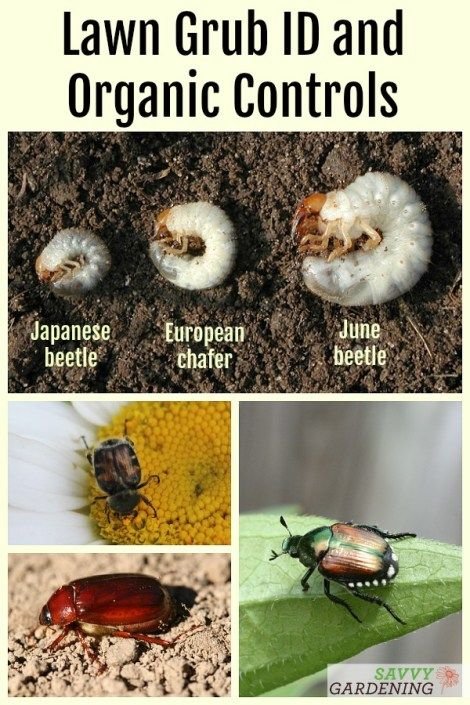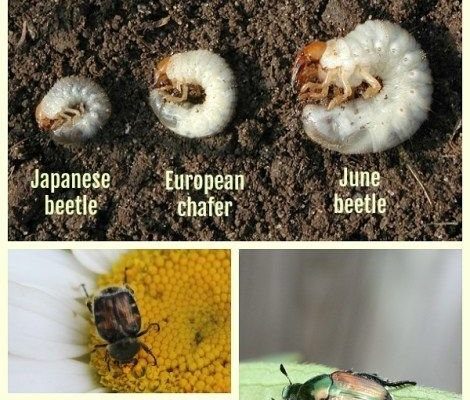
Think of grub worms like uninvited party crashers. They show up, eat all your snacks (aka your roots and grass), and leave a mess behind. The good news is that, just like a well-planned party, you can take steps to minimize their impact and ensure your garden remains vibrant and healthy. From natural predators to homemade concoctions, let’s dive into the best organic methods to control grub worms and keep your lawn looking lush.
Understanding Grub Worms
Before we jump into how to control these pesky pests, it’s essential to know what you’re dealing with. Grub worms are the larvae of various beetles, like Japanese beetles and June bugs. They typically burrow underground, where they feast on grass roots and other plant parts. You might be wondering how to identify them. They are usually C-shaped, white or off-white in color, and can grow up to 1 inch long.
You may find them most active during late summer and early fall. When the weather warms up, they begin their journey to the surface, causing the most damage. Examining your lawn in late summer is crucial. If you pull up a patch of grass and the roots seem severed, you might have a grub problem on your hands.
So, how do we tackle this problem without reaching for harsh chemicals? That’s where our organic methods come in.
1. Encourage Natural Predators
One of the simplest and most effective ways to control grub worms is to invite their natural predators into your garden. Birds, especially starlings, crows, and blue jays, love snacking on these pests. To attract birds to your yard, consider adding birdhouses, feeders, and water sources. Not only will they feast on the grubs, but they’ll also beautify your garden with their presence.
Additionally, certain insects can help control grub populations. **Nematodes**, tiny roundworms, can be particularly effective. They hunt down and infect grub worms, ultimately leading to their demise. Simply purchase beneficial nematodes from a garden center, and follow the instructions for application. You might be surprised at how quickly nature can restore balance.
2. Use Beneficial Microorganisms
Another organic method to consider involves using beneficial microorganisms. **Bacillus thuringiensis** (Bt) is a bacteria that can help control pest larvae, including grubs. While it’s primarily known for targeting caterpillars, it can still be effective against grubs if introduced into your garden.
To use Bt, apply it to your soil following the product instructions. It’s safe for humans and pets, making it a fantastic choice for organic gardening. You might want to spray it during the grub’s active feeding season for the best results. It’s like hiring a superhero to come in and save the day without any of the side effects of harmful chemicals.
3. Planting Companion Plants
Companion planting isn’t just a trendy phrase; it’s a powerful strategy for organic pest control. Certain plants can deter grub worms and other pests simply by being in proximity to your crops. For example, consider planting **marigolds** around your vegetable garden. Their strong scent can confuse pests, keeping them away from your prized plants.
Other plants like **nasturtiums** and **garlic** can also act as natural repellents. Not only do they add beauty and flavor to your garden, but they also create a natural barrier against unwanted invaders. Think of them as your garden’s bodyguards, standing watch while you enjoy a peaceful afternoon.
4. Compost and Organic Fertilizer
Healthy soil leads to strong plants, which can withstand pest attacks more efficiently. By using **organic compost** and fertilizers, you’re not only feeding your plants but also improving the soil structure and its ability to retain moisture. This environment makes it harder for grubs to thrive.
When applying compost, aim for a layer of about one inch spread evenly across your garden. This will naturally introduce beneficial microorganisms and nutrients that strengthen your plants. Remember, healthier plants are more resilient to pest damage. Give your plants the nourishment they deserve, and watch them flourish.
5. Homemade Grub Control Recipes
If you’re the crafty type, you might enjoy making your own grub control solutions. One popular and effective method is to use a simple **soap and water mixture**. Mix a few tablespoons of mild liquid soap in a spray bottle filled with water. Spray this mixture directly onto the affected areas in your garden. The soap suffocates the grubs while minimizing harm to beneficial insects.
Another powerful concoction involves **neem oil**, derived from the seeds of the neem tree. Mix neem oil with water according to the product’s instructions, and spray it on your lawn. Not only does it disrupt the life cycle of grubs, but it also acts as a repellent for many other pests. It’s like giving your plants a protective shield against unwelcome visitors.
6. Practice Lawn Care and Maintenance
Prevention is key when it comes to controlling grub worms. By maintaining a healthy lawn, you can make it less attractive to them. Regular mowing, watering, and aerating your lawn can significantly decrease the chances of a grub infestation.
Mow your grass to the recommended height for your specific variety, as shorter grass can stress the plant and leave it vulnerable to pests. Additionally, watering deeply but infrequently can encourage strong root systems, making grass more resilient. Aeration helps improve drainage and soil health, creating an environment that’s less suitable for pests like grub worms.
7. Regular Monitoring and Inspection
Lastly, you’ll want to keep a watchful eye on your lawn. Conduct regular inspections to identify any signs of grub damage early on. Check for brown patches, wilted plants, or even the grubs themselves. The sooner you catch a problem, the easier it’ll be to control.
Consider setting up a routine—maybe every couple of weeks during the growing season—where you examine your lawn closely. If you notice any signs of trouble, you can implement your organic methods promptly. It’s like having a garden health check-up, ensuring everything stays in tip-top shape.
Controlling grub worms organically is not only possible but can also be rewarding. By using natural predators, beneficial microorganisms, and proper lawn care techniques, you can keep your garden thriving without resorting to harsh chemicals.
Remember, it’s all about creating a balanced ecosystem in your garden. Embrace the diversity of plants and creatures that can coexist with your crops, and you’ll find that nature often has the best solutions. With these organic methods, you can enjoy a beautiful lawn and garden that flourishes season after season. Happy gardening!

